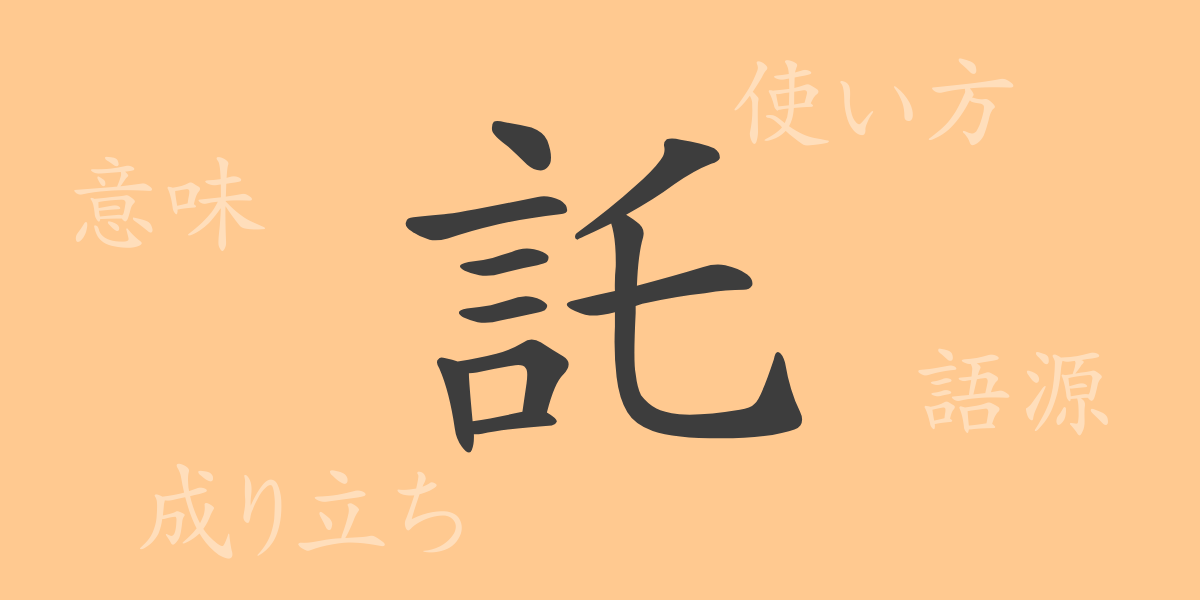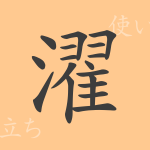Kanji, each with its own history and meaning, are essential to the Japanese language. “託” (たく) (taku) is a commonly used Kanji in everyday conversation and business scenarios, playing a significant role in our lives. This article delves into the origins, meanings, and uses of “託”, exploring its appearance in phrases, idioms, and proverbs to uncover its allure.
Origins of ‘託’ (たく) (taku)
The Kanji “託” originated in ancient China, symbolically representing the act of entrusting something to someone else with a hand gesture. The combination of “言” (words) and “托” (a hand extending) forms “託”, which historically symbolized entrusting or committing something through words.
Meaning and Usage of ‘託’ (たく) (taku)
“託” means to entrust, delegate, or assign, used within contexts of trust where one hands over responsibilities to another. It is also used metaphorically to imply using other matters as a reason to conceal the main intent. Common applications include “託す” (たくす) (takusu) to entrust, “託児” (たくじ) (takuji) childcare services, and “託送” (たくそう) (takusou) entrusted delivery.
Readings, Stroke Count, and Radical of ‘託’ (たく) (taku)
The Kanji “託” incorporates essential details necessary for its understanding:
- Readings: On’yomi (Sino-Japanese reading) is “タク” (taku), Kun’yomi (native Japanese reading) includes “たく.す” (takusu), “かこつ.ける” (kakotsukeru).
- Stroke Count: “託” consists of 10 strokes.
- Radical: The radical is 言 (ごんべん) (gonben).
Phrases, Idioms, and Proverbs Using ‘託’ (たく) (taku) and Their Meanings
Phrases and idioms involving “託” reflect its underlying meanings:
- 子を託す (こをたくす) (ko wo takusu): To entrust one’s child to someone else.
- 託宣 (たくせん) (takusen): Speaking on behalf of divine will.
- 託言 (たくげん) (takugen): Relaying someone else’s words.
- 空に託す (そらにたくす) (sora ni takusu): Entrusting one’s hopes or wishes to the heavens.
- 託ける (かこつける) (kakotsukeru): To use as an excuse or pretext.
These expressions are invaluable in conveying intentions within interactions.
Summary on ‘託’ (たく) (taku)
The Kanji “託” plays a crucial role in depicting relationships of trust and the transfer of responsibilities. Its meanings extend from the physical act of entrusting to abstract concepts like entrusting one’s hopes and desires. As a vital part of Japanese Kanji, understanding “託” enriches our communication and cultural expressions.

























